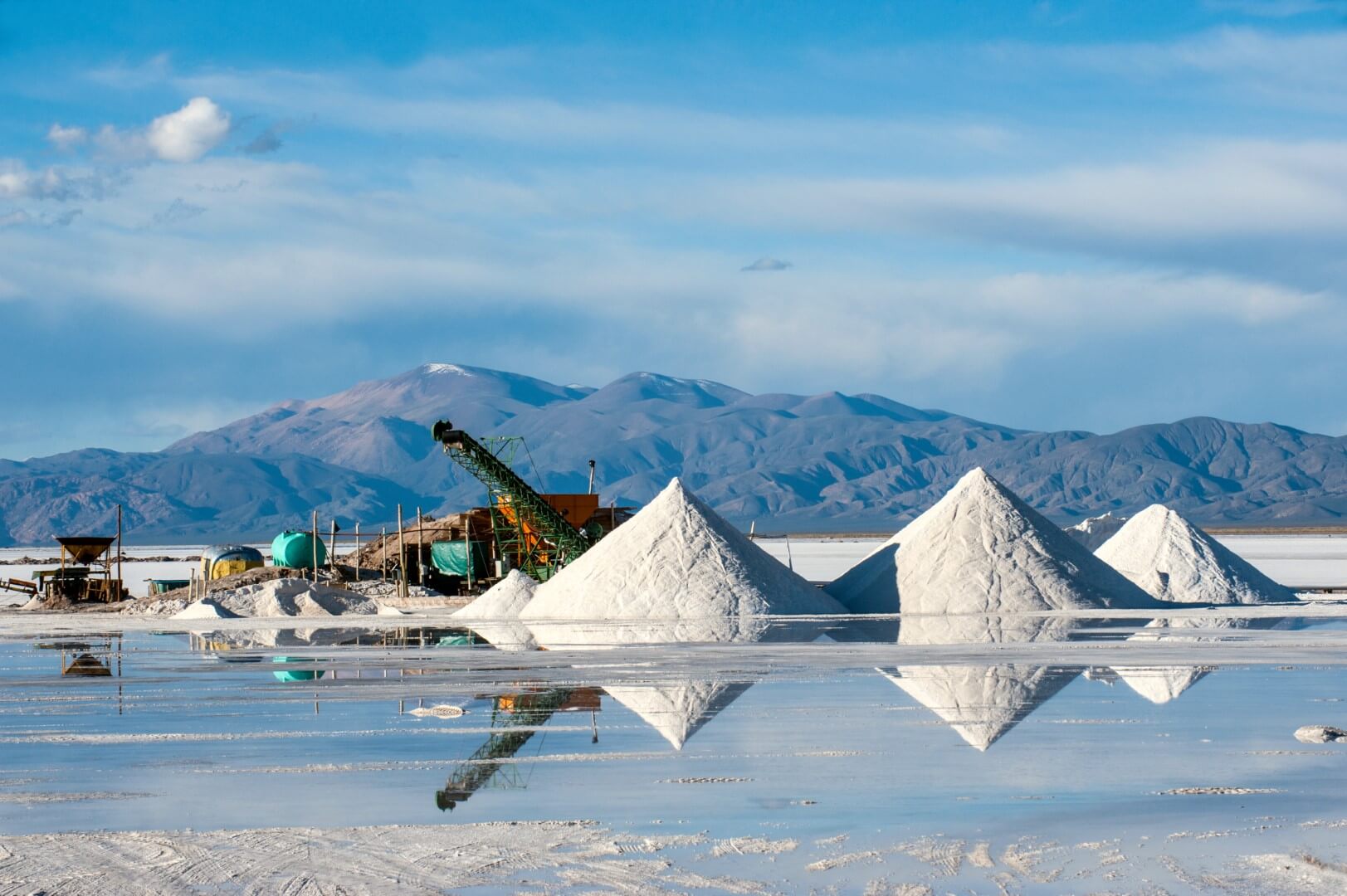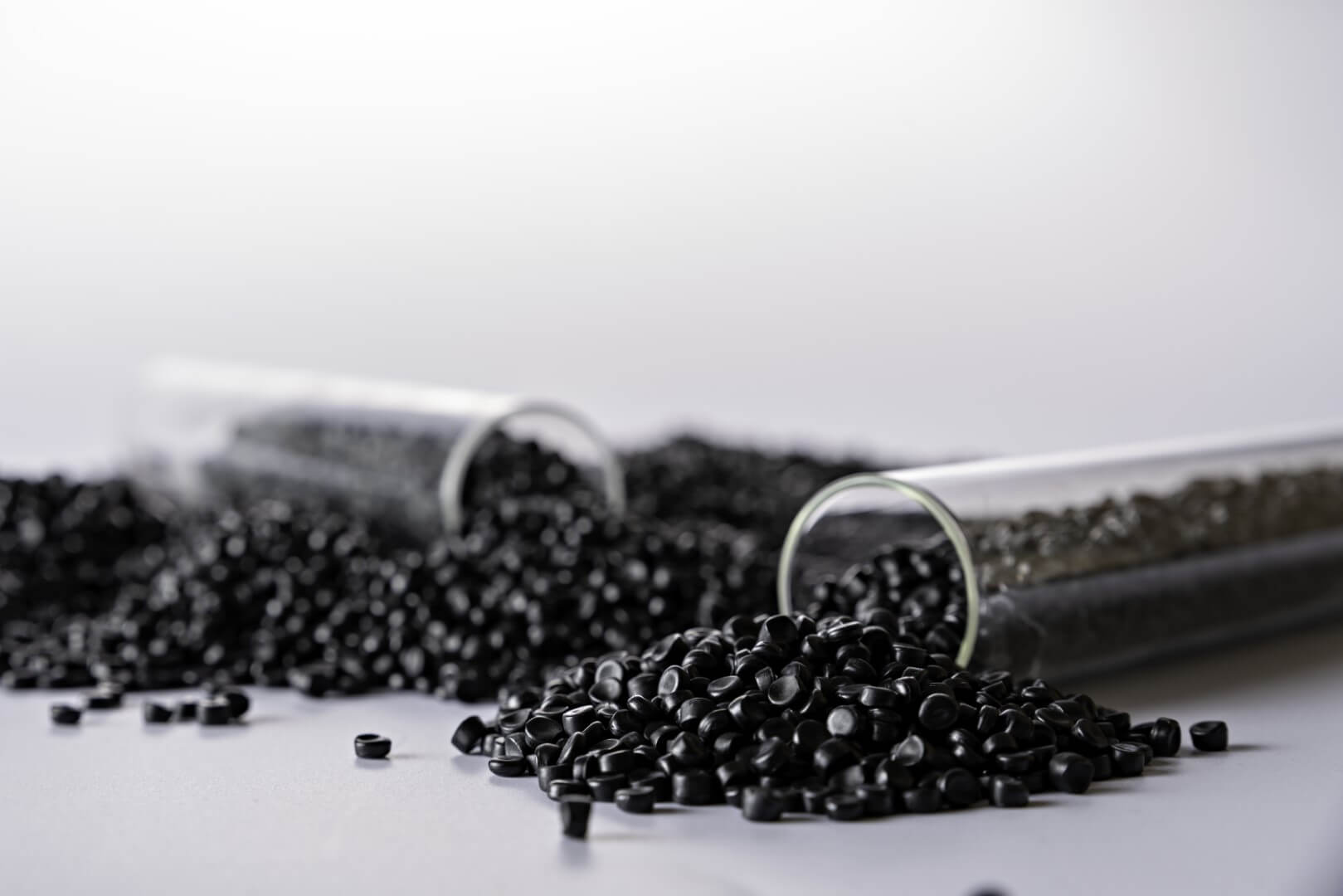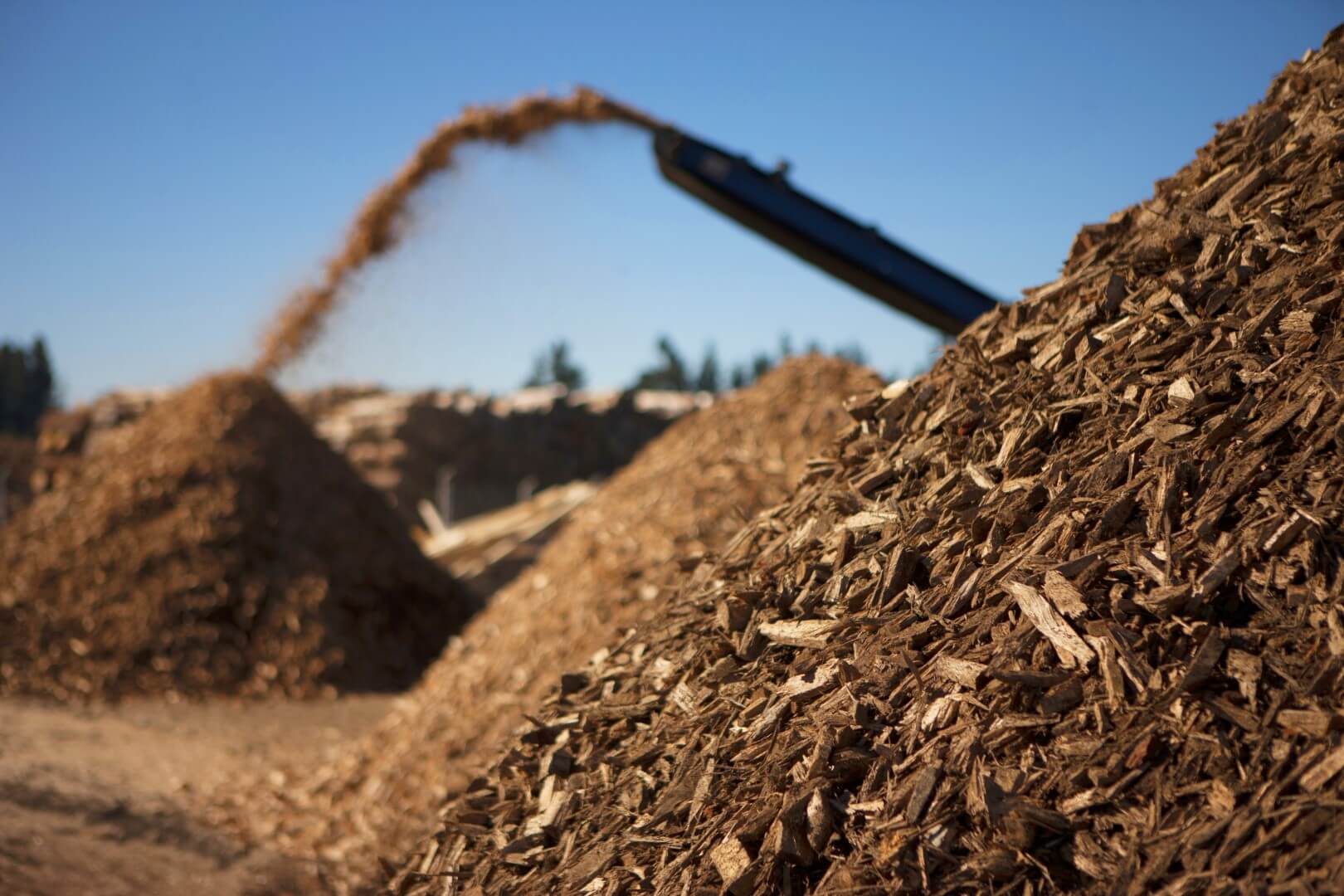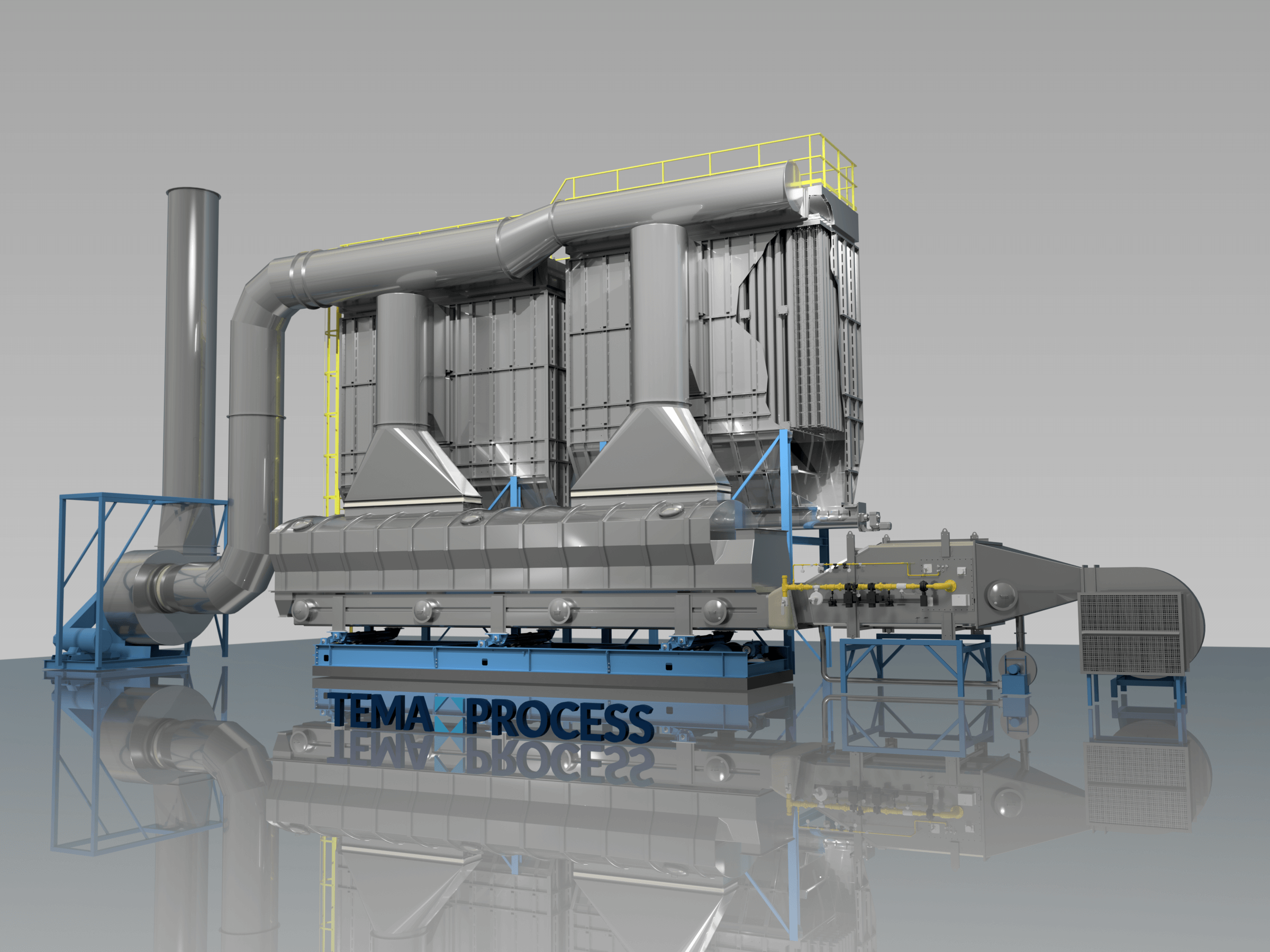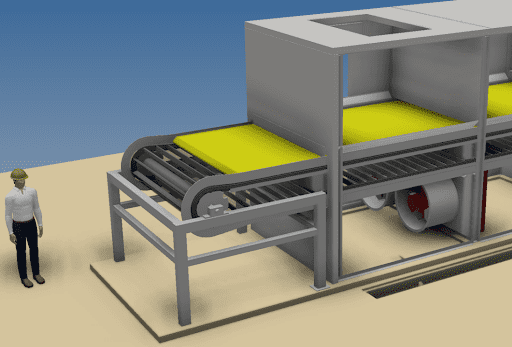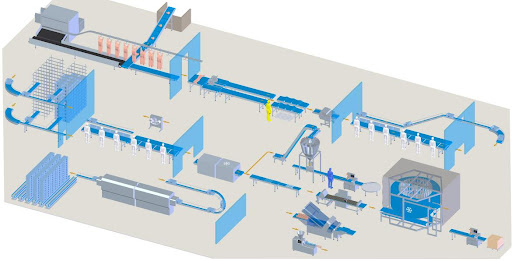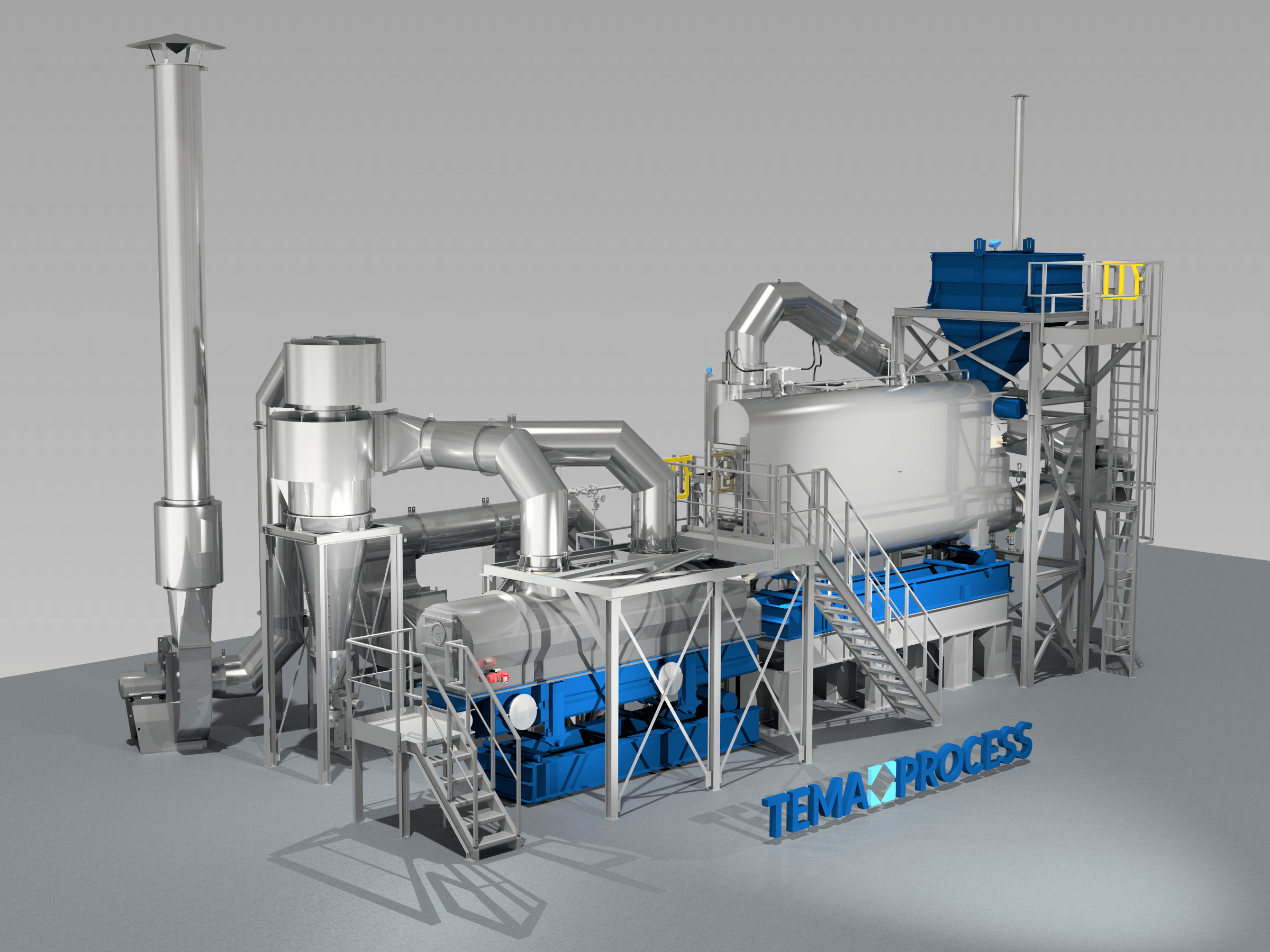- All
- Environmental Impact
- General Information
- Health and Safety
- Maintenance and Operations
- Product Applications
- Technical Specifications
TEMA Process maintains a robust supply of spare parts for their equipment, including critical parts for their fluid bed dryers/coolers. They ensure that spare parts are readily available for immediate shipping, minimizing any potential downtime caused by equipment failure. Additionally, TEMA provides a list of replacement parts and preventative maintenance guidelines with each order, ensuring that clients have all the necessary information for the upkeep of their equipment.
Are you an existing customer looking for service or spare parts? Please take a look at our Service page with request form
To support equipment longevity, TEMA Process offers preventive maintenance services. This includes regular inspections, replacement of wear parts, and system upgrades when necessary. Their proactive approach to maintenance helps in identifying potential issues before they become major problems, thereby extending the lifespan of the equipment and ensuring consistent performance.
Are you an existing customer looking for service or spare parts? Please take a look at our Service page with request form
TEMA Process provides a comprehensive range of services to support the optimal functioning of their equipment. These services include regular maintenance checks, field services by skilled engineers and technicians, and technical support for any operational issues. Their team is equipped to perform various maintenance tasks, detect defects in critical components at an early stage, and provide solutions that reduce downtime, increase machine lifetime, and enhance efficiency.
Are you an existing customer looking for service or spare parts? Please take a look at our Service page with request form
The end point in a fluid bed dryer (FBD) refers to the completion of the drying process, determined by achieving the desired moisture content in the product. This is typically measured using moisture analyzers or sensors that continuously monitor the moisture level of the material being dried. The end point is crucial as it ensures the product meets specific moisture specifications for quality and stability. Overdrying or underdrying can affect product quality, efficiency, and processing costs. In pharmaceuticals, for instance, achieving the precise end point is vital to maintain drug efficacy and safety. The advanced control systems in TEMA Process equipment accurately determine this end point, ensuring optimal drying results.
Want to know more about Fluid Bed Dryers? check our page How does A Fluid bed Dryer Work?
Conventional dryers and fluid bed dryers differ primarily in their operating principles and efficiency. Conventional dryers, like rotary or drum dryers, dry materials by applying heat directly or indirectly to the material as it passes through a rotating cylinder. They are typically used for larger, more robust materials. On the other hand, fluid bed dryers use a fluidizing medium, usually heated air, to suspend and dry particles. This results in a more uniform and efficient drying process, ideal for powdery, granular, or sensitive materials. Fluid bed dryers offer better heat transfer, faster drying times, and more uniform drying compared to conventional dryers, making them a preferred choice for various industrial applications.
Want to know more about Fluid Bed Dryers? check our page How does A Fluid bed Dryer Work?
A fluid bed dryer is a type of industrial drying equipment used to efficiently and uniformly dry materials. The primary purpose of a fluid bed dryer is to enhance heat and mass transfer by suspending particles in a fluidizing medium (usually air or gas), leading to faster drying times and consistent product quality. This method is particularly effective for granular, powdery, or crystalline materials, commonly found in industries like food, pharmaceuticals, chemicals, and minerals. The fluid bed process ensures efficient drying while maintaining the integrity and quality of the product.
Want to know more about Fluid Bed Dryers? check our page How does A Fluid bed Dryer Work?
In the feed industry, TEMA Process equipment is vital for drying and cooling animal feed products. This includes feed ingredients like fish meal, animal feed, and return bread. The fluid bed systems ensure uniform drying of these products, which is essential for maintaining nutritional quality and preventing spoilage. The gentle drying process preserves the integrity of the feed, ensuring that it remains palatable and nutritious for animals.
For more information see our Food & Feed industry page
TEMA Process plays a significant role in the biomass industry by providing equipment for drying biomass residues and slurries. Their systems are used to reduce moisture content in biomass products like wood chips, orange and lemon peel, and sludge, preparing them for further processing or use as biofuels. The drying process in TEMA equipment is designed to be energy-efficient and environmentally friendly, supporting the sustainable use of biomass resources.
For more information see our Renewables industry page
In the chemical industry, TEMA Process equipment is utilized for drying, cooling, and processing a wide range of chemical products. This includes salts, detergents, fertilizers, and polymers. Their fluid bed dryers are particularly effective for handling crystalline materials and powders, providing efficient drying while preserving the chemical integrity of the products. The equipment’s robust design ensures it can withstand the potentially corrosive and challenging environments often found in chemical processing.
For more information see our Chemicals industry page
In the mineral industry, TEMA Process equipment is primarily used for drying and cooling various minerals. Fluid bed dryers are employed to efficiently dry materials like sand, gypsum, limestone, and potash. These systems are designed to handle the abrasive nature of minerals and ensure uniform drying, which is critical for consistent product quality and downstream processing. Additionally, TEMA’s cooling systems are used to bring down the temperature of processed minerals to safe handling levels, enhancing operational safety and efficiency.
For more information see our Mineral industry page
In the food industry, TEMA Process equipment is extensively used for various applications, including drying, cooling, and pasteurizing food products. Fluid bed systems are ideal for gently and evenly drying ingredients like spices, herbs, breadcrumbs, and cereals, preserving their quality and flavor. TEMA’s pasteurization systems provide a natural method to reduce microbial load in spices and herbs without using chemicals, maintaining the organic integrity of these ingredients. Additionally, their belt dryers are used for efficiently drying larger or sticky food products like gelatin, ensuring consistent product quality and safety.
For more information see our Food & Feed industry page
TEMA Process designs its fluid bed dryers with environmental considerations in mind. These dryers are highly energy-efficient, reducing the overall energy consumption of the drying process. The efficient heat and mass transfer characteristics of the fluid bed dryers mean shorter drying times and lower energy usage. Furthermore, TEMA’s systems can include features like heat recovery systems and closed-loop operation to minimize emissions and reduce the environmental footprint. By optimizing the drying process and incorporating sustainable practices, TEMA contributes to more environmentally friendly industrial operations.
Maintenance of TEMA Process fluid bed dryers involves routine checks and cleaning to ensure optimal performance and longevity. Key maintenance tasks include inspecting and cleaning the air filters, checking the integrity of the fluidizing bed, and ensuring that all mechanical and electrical components are functioning correctly. Regular maintenance helps prevent unexpected downtimes and prolongs the equipment’s life. TEMA also provides detailed operational manuals and training, enabling clients to carry out routine maintenance effectively. For more complex maintenance or repairs, TEMA offers professional support and service packages.
TEMA Process offers both continuous and batch fluid bed dryers to cater to various industrial needs. Their continuous dryers are ideal for large-scale, consistent drying operations and can be static or dynamic (shaking or vibrating), depending on the application. Static fluid beds are typically used for non-sticky, homogenous materials, while dynamic fluid beds are suitable for more challenging, sticky, or inhomogeneous materials. Batch fluid beds are used in applications where product integrity is paramount, such as in the pharmaceutical industry or for processing small quantities. The versatility in design allows TEMA to provide solutions tailored to the specific drying requirements of different industries.
Fluid bed dryers are a type of industrial drying equipment used extensively by TEMA Process. They work on the principle of fluidization, a process where a material is converted into a fluid-like state through the introduction of a gas or liquid. In the case of TEMA’s fluid bed dryers, air is passed through a bed of solid particles at a high enough velocity to suspend the particles in a fluidized state. This creates a large surface area between the air and the material, leading to efficient heat and mass transfer. This method is highly effective for evenly drying materials, ensuring consistent quality and reducing drying times compared to traditional methods.
Yes, TEMA Process specializes in providing custom equipment solutions tailored to the unique requirements of their clients. Understanding that each industry and application has specific needs, TEMA’s engineering team collaborates closely with clients to design and manufacture equipment that meets these precise requirements. Whether it’s adjusting the size, capacity, materials of construction, or integrating specific features for enhanced performance, TEMA Process ensures that the final product aligns perfectly with the client’s operational needs. This bespoke approach is especially beneficial in industries where standard solutions may not be adequate, ensuring optimal efficiency and productivity.
TEMA Process actively participates in various industry expos and conferences globally. These events are excellent opportunities for clients and industry professionals to engage with TEMA’s experts, learn about the latest innovations in thermal processing equipment, and see demonstrations of their technology. The specific events and locations vary each year, but TEMA often attends major industry-specific expos related to the food, chemical, mineral, and biomass sectors. For the most up-to-date information on where TEMA Process will be exhibiting, it’s recommended to check their official website or subscribe to their newsletter. Additionally, following TEMA Process on social media platforms can provide timely updates on upcoming events and their participation details.
For upcoming and past events please see our event newspage
TEMA Process provides a comprehensive range of services to ensure the optimal performance and longevity of their equipment. These services include detailed engineering and design consultation, where their experts work closely with clients to understand specific needs and tailor solutions accordingly. They also offer installation and commissioning services, ensuring that the equipment is set up correctly and operates efficiently from the start. Additionally, TEMA Process provides training for operators to ensure they can safely and effectively manage the equipment. Post-installation, TEMA offers maintenance and support services to help with any operational issues or upgrades needed over the equipment’s lifespan. These services collectively ensure that clients receive not only high-quality equipment but also the necessary support to maximize their investment.
TEMA belt dryers offer several unique features, including multiple drying zones with adjustable air volumes, temperature, and humidity control. They are designed for hygienic operation, maximizing product output while minimizing energy consumption. These dryers are ideal for products that are not suitable for fluid bed drying due to factors like stickiness, particle size, or required residence time.
TEMA Process operates globally, with installations in various countries across Europe, Asia, and the Americas. This wide reach demonstrates the company’s ability to meet diverse industrial needs worldwide, adhering to different regional standards and requirements.
TEMA Process systems contribute to sustainable operations by reducing energy consumption and minimizing waste. Their drying and cooling systems, designed for energy efficiency, help industries reduce their carbon footprint. Additionally, the utilization of by-products in industries like gelatin production aligns with sustainable practices, turning waste streams into valuable products.
Yes, TEMA Process offers solutions for air decontamination. Their dehumidifiers, for example, not only control humidity and temperature but also effectively remove water from airborne microorganisms, thereby reducing the bacterial load in the air. This feature is particularly beneficial in processes or rooms where air decontamination is a requirement.
Integrating TEMA Process equipment into existing facilities is generally straightforward, thanks to their modular design and compatibility with various industrial automation systems. The company’s expertise in programming different PLC brands and providing visualization through HMI or SCADA systems facilitates seamless integration and operation.
TEMA Process equipment is constructed using various materials to suit different industrial needs. These materials include mild steel, heat-resistant steel, stainless steel (various grades), duplex steel, and titanium. The choice of material depends on factors like the nature of the product being processed, the required temperature range, and environmental considerations.
Absolutely, TEMA Process fluid bed systems are well-suited for the biomass industry. They are used for drying various biomass products, including orange and lemon peel, sludge, manure, and wood biomass. The design of these systems takes into account the need to reduce emissions and odors, ensuring environmentally friendly operation.
TEMA Process offers comprehensive testing facilities to determine the best possible product performance. These facilities include laboratory-scale testing, pilot plant scale, and industrial size testing. This service allows clients to optimize their processes and equipment settings before full-scale implementation, ensuring efficiency and effectiveness in their operations.
TEMA Process systems are designed to minimize environmental impact, including air quality. For example, their decontamination plants for the food industry operate in a closed system, avoiding contact with the external environment. Exhaust systems like cyclones, scrubbers, and bag filters in their equipment ensure that emissions are controlled and meet environmental standards.
TEMA Process systems are designed for energy efficiency. For instance, their dehumidifiers save up to 50-60% on cooling power consumption compared to traditional air conditioning systems. Additionally, the use of submerged heat exchangers in fluid bed systems reduces the size of the equipment and limits exhaust air volume, further contributing to energy savings.
TEMA Process prioritizes operator safety by incorporating various safety features into their systems. This includes safe control panels, emergency shutdown mechanisms, and protective measures against high-temperature exposure. The equipment’s design ensures minimal contact between operators and potentially hazardous materials, further enhancing safety in the workplace.
Yes, TEMA Process systems are designed with food safety in mind. For example, their natural pasteurization plants use pure steam for sterilization, ensuring the safe processing of herbs, spices, and other food ingredients without compromising quality. Additionally, their systems are designed to meet hygienic standards required in the food industry, with features like CIP (Clean-in-Place) for easy and effective cleaning.
TEMA Process equipment is designed for easy maintenance and durability. Regular checks and maintenance routines typically include inspecting and cleaning filters, checking the fluidizing and heating systems, and ensuring that all moving parts are functioning correctly. The equipment’s modular design facilitates easy access for maintenance tasks, reducing downtime and ensuring long-term reliability.
TEMA Process systems are controlled through advanced PLC (Programmable Logic Controller) systems, which can be integrated into a factory’s existing industrial automation system. These control panels are designed to manage, calculate, monitor, and protect the complete drying or cooling solution. They can be programmed for different PLC brands and offer visualization of production processes, ensuring seamless operation and monitoring.
TEMA Process dryers are designed to operate efficiently across a wide temperature range. For instance, in the biomass industry, torrefaction temperatures typically range from 200 – 320 °C. In the food industry, pasteurization temperatures vary between 85 – 98 °C for low temperature pasteurization and 103 – 122 °C for high temperature pasteurization. This flexibility allows TEMA dryers to be tailored to specific industry requirements.
TEMA Process dehumidifiers utilize a Lithium Chloride salt solution as an absorbent. This solution closely follows the relative humidity curve of air, allowing for precise control of outlet air humidity. By cooling the salt solution before spraying, TEMA systems can effectively control both air temperature and humidity independently. This principle is crucial in maintaining optimal conditions in various industrial settings, such as meat processing plants.
Yes, TEMA Process offers specialized belt drying lines for the production of high-quality gelatin, derived from fish, pig skins, and bovine bones. These systems are designed to handle the unique properties of gelatin, ensuring efficient drying while maintaining product integrity. The systems also feature precise humidity and temperature control, vital for producing consistent quality gelatin used in food, pharmaceuticals, and other industries.
TEMA Process equipment is versatile and finds applications in multiple industries. These include the food and feed industry for products like breadcrumbs, spices, and animal feed; the mineral industry for materials like sand and limestone; the chemical industry for salts and fertilizers; and the renewables/biomass industry for drying biomass residues and slurries. This diversity demonstrates TEMA Process’s ability to cater to a wide range of industrial drying and cooling needs.
TEMA Process B.V. is a relatively young company, but it’s backed by a wealth of experience from its management and employees in thermal processing equipment. The company is part of a group that has grown significantly over nearly 90 years, now encompassing over 45 companies worldwide, indicating a strong background and stability in the industry.
TEMA Process specializes in the design and manufacture of thermal and physical process equipment, with a strong emphasis on fluid bed dryers and coolers. Their products find applications in various industries, including food, feed, mineral, chemical, and biomass industries. With a focus on efficiency and sustainability, TEMA Process provides equipment that offers high heat and mass transfer, making them suitable for a range of drying, cooling, and processing needs.

